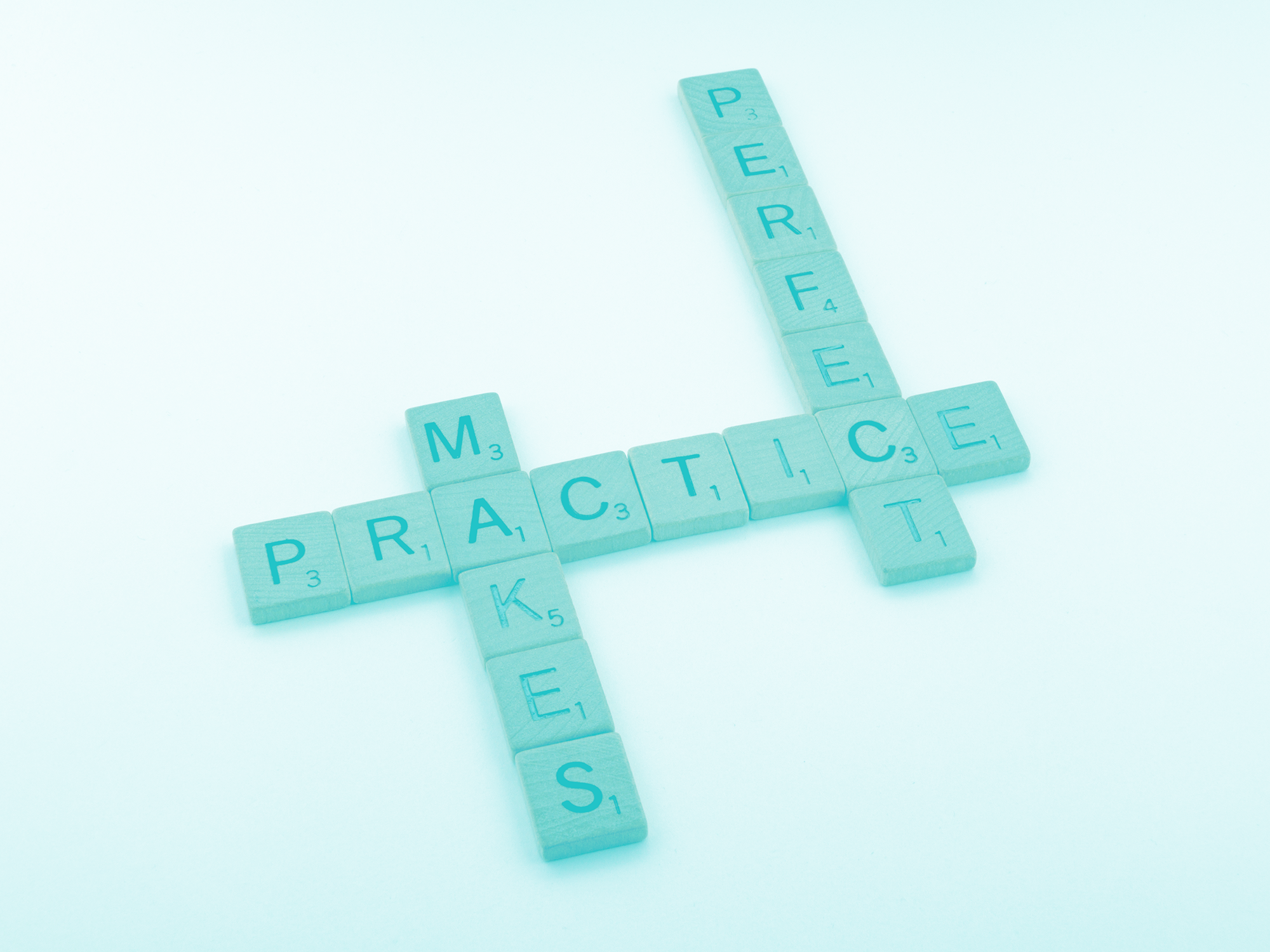Practice makes perfect – but how much is enough?
Photo by Brett Jordan on Unsplash
In our last post we looked at deliberate practice and why the quality of practice matters. Now to the big, hairy question – how much practice is enough?
The technique of deliberate practice was published in a paper in 1993. In 2008, Malcolm Gladwell published his book, Outliers, and his idea that it required 10,000 hours of practice to become an expert of anything, swept the world.
10,000 hours roughly translates to about 10 years of practice. For most of us, this is a big number – too big! You may think – I don’t have that much time. But also – maybe I don’t need to be the world’s best expert in something either.
So let’s forget about being an expert. How much practice does it take to be just really good at something? Josh Kaufmann researched this exact question – and he came up with 20 hours.
Now, that’s a pretty big gap between 10,000 and 20 – and let’s be honest, both are still a decent time investment. When we talked about this in our last coaching webinar, we had a question sent to us about this – what is the minimum amount of practice someone can do to get better at a skill?
So we did some research.
A recent study by Ken Koedinger, out of Carnegie Mellon University in the US, showed that it took somewhere between 3.6 to 13.3 applications or practice events to get to 80% level of correctness. Interestingly, the research also showed that the rate at which students learnt the material was the same. The difference between whether a student took 3.6 or 13 practice sessions was down to their previous level of knowledge and expertise in the topic. On average, it took 7 deliberate practice events for most people to get to 80% level of correctness.
Photo by Craig Adderley: https://www.pexels.com/photo/photo-a-man-and-woman-doing-martial-arts-1543932/
This has really interesting implications for us in learning. Firstly, we know that sending out reminders of content, refresher videos etc. really don’t have much impact on mastery. We know that mastery requires application – and according to this new research – on average, about 7 practice events. So it seems that it’s less about how many hours you spend doing practice and more about the number of deliberate practice or application events.
So what that would look like in the real world of training? Let’s say that coaches were trying to master the coaching behaviour of trying to talk less and ask more questions in their coaching sessions. And they selected 2-3 types of open questions that could easily lead to follow-up questions. This research says, depending on your starting point, that you would need practice it 4-13 times in either real or role play-type scenarios. After which you could be assessed and would likely achieve an ‘A’.
That may not necessarily take that much time – certainly not 10,000 hours. The question then becomes, how many organisational learning and development teams are set up to assess and measure up to 13 separate practice events? Unless they’re using our friends at YakTrak, not too many.
There is much work still to do for organisations to re-skill, upskill and reach new levels of people capability and performance.
But it does help us look at skill-building practice differently. Forget about measuring on the time you put in and concentrate instead on the number of quality deliberate practice events you action – and think about how you make this happen for the people you lead and coach.


